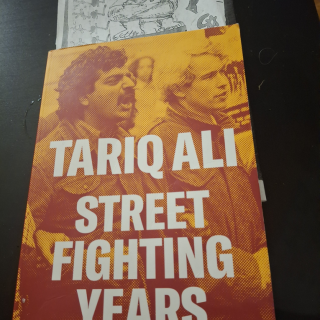Advertisement
Surely Walter F. White, the superlative black investigative journalist, civil rights leader, author, and member of the Harlem Renaissance, is one of the most neglected figures in the twentieth century freedom movement. Perhaps it is, in part, because he was a black man who looked white. He once wrote of himself , “My skin is white, my eyes are blue, my hair is blond. The traits of my race are nowhere visible upon me.” An essay in the Winter 1998 issue of the magazine American Legacy, says “The Ethical Culture Society leader Algernon Black was called upon to introduce him before an address. Mr. Black was introducing Mr. White, but Mr. Black was white and Mr. White was black, while of a whiter complexion than Mr. Black.”
The son of George and Madeline White–and the great grandson of President William Henry Harrison–White grew up in Atlanta in a middle class family in a well tended house situated on a corner lot. His father studied at Atlanta University and became a postal employee; his mother graduated from there and was a teacher. Like his parents, White attended Atlanta University, graduating in 1916. The Whites were members of the First Congregational Church, the leading black denomination of Atlanta’s black middle class.
Living in the deep south in the late nineteenth and early twentieth centuries, their white skin might have spared the Whites from some of the worst racial animus directed at Black Americans during that time. It is admirable that the family claimed their blackness as they could have easily passed for white. Nonetheless, the family knew the sting of prejudice and discrimination. Whites grumbled about their prosperity, his mother began to be excluded from shopping at a white owned store which she had long patronized, and their home was targeted during the Atlanta race riot of 1906.
After his graduation from college, White helped to found a chapter of the National Association for the Advancement of Colored People (NAACP) in Atlanta, and took a job at a successful black insurance agency. The towering black intellectual, W. E. B. Du Bois, was a co-founder of the organization. He knew White’s parents and at Atlanta University had taught two of White’s siblings. Perhaps it was why the director, James Weldon Johnson, asked the young man to move to New York City and work for the organization. First as assistant to the director and later as the leader of the NAACP, White played pivotal roles in expanding legal challenges to segregation in schools and public accommodations and ending the suppression of black voters. He also established the Legal Defense Fund and supported President Harry S Truman in ending segregation in the armed forces.
Unarguably, his greatest contribution to the organization was his commitment to uncover and report the lynchings of black people by white mobs and get the federal government to pass an anti-lynching law. He soon began passing–not to escape his blackness, but to facilitate his undercover work. White traveled to southern locales where lynchings were planned–they were sometimes advertised in advance–or had taken place, and blending in with the citizenry, gathered specific and gruesome details. This meant exposing himself to the Ku Klux Klan, corrupt law enforcement officials, and virulently segregated whites. He would then return to his New York office and write reports and articles which he sent to government officials, newspapers, magazines, and organizations involved in anti-lynching efforts. White also took on a herculean, cross country speaking schedule to disseminate information on lynching and raise money to fight it.
The work was daring and dangerous. He had to carefully present his curiosity and response to the information he gathered and be on the lookout for white southerners who were extremely suspicious of outsiders. In Little Rock, Arkansas, White had somehow been outed as an imposter, and raced to get the next train out of town. He was told by the ticket agent, “You’re leaving just when the fun is going to start. There’s a damned yaller nigger down here passing for white and the boys are going to have some fun with him.”
White and the NAACP worked valiantly for a federal anti-lynching law. Through his friendship with First Lady Eleanor Roosevelt, he was even able to speak to FDR about it, but the president demurred. White southern, racist Democrats had a stranglehold on Congress, and FDR would not jeopardize legislation to end the Depression by proposing an anti-lynching bill. Weary of the president’s lack of support, White resigned his appointment to an advisory council on the Virgin Islands. The inability to get a federal anti-lynching bill was his greatest professional disappointment.
Walter White’s life was not without controversies. He became more autocratic as head of the NAACP, causing friction in the office. White disagreed with Marcus Garvey, the Jamaican born black man who founded the Universal Negro Improvement Association (UNIA), stressed capitalism and self-help for the Black community, and met with the Ku Klux Klan to discuss the positive similarities between the two organizations. He was slow to support the Scottsboro Boys, nine black young men who had been accused of raping two white women on a train, because the Communist party took up their cause. White’s bitter feud with Du Bois became public when the latter argued that blacks should think about practicing voluntary segregation from whites so as to live, prosper, and thrive in an all-black world within the larger American society. It was a factor in Du Bois’ departure from the NAACP. Some thought White had become a bon vivant and enjoyed too much his relationships with white movers and shakers who supported black artists during the Harlem Renaissance. When he divorced his black wife after a decades-long marriage and quickly married his white mistress, many of his friends were furious. His children scorned him and his son went so far as to change his last name. Friends and other family members accused White of cultural treason; a few opined that what he really wanted was to be white. Several board members of the NAACP thought he should resign. The affair and interracial marriage sullied his reputation and legacy.
Walter White died in 1955, on the cusp of the modern day freedom movement and eight years before his nemesis, Du Bois. His consequential work in trying to end segregation and lynching has been obscured since that time. In White Lies, Baime rescues White from the dustbin of history, and places him in the pantheon of great black leaders of the twentieth century. It’s an excellent book, long overdue, and a well deserved tribute to a central figure in American history



